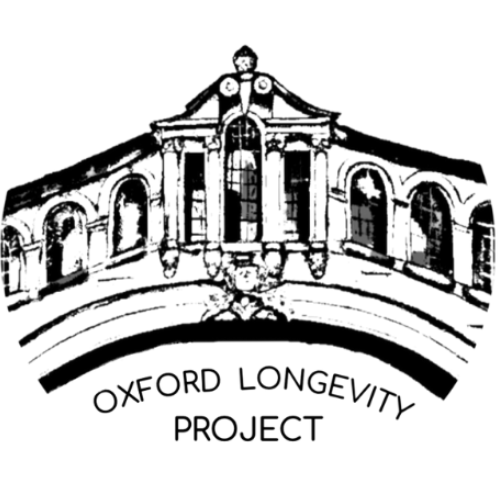
LONGEVITY LIFESTYLE
Ageing is the greatest risk factor for chronic diseases such as cancer, heart disease, and dementia. While modern medicine has significantly increased average life expectancy from 100 years ago, many of those added years are spent managing illness [1]. The focus has therefore shifted within research to how to target ageing processes to extend healthspan along with lifespan - extending the years we stay healthy and active.
Genetics only influence about 25% of how long we live, while the rest comes down to how we care for our bodies[2]. Like anything used daily, the body accumulates wear and tear with age. However, by supporting our body’s natural repair systems, we can slow that process. Adopting simple, everyday lifestyle habits can give you real power over your healthspan.
Drawing from the latest research and the habits of the world’s longest-lived populations, we’ve curated a longevity toolkit of some of the most effective practices to help you live not just longer, but better.
LONGEVITY TOOLKIT
DIET
Plant BAsed Diet
“Fact: The diets of people who make it to 100 are 90% whole food and plant based, often foods grown in their gardens. ”
You may have heard of your ‘5 a day’ but do you know of the power this has for your health-span?
Research published in Circulation [3], the flagship journal of the American Heart Association, suggests that consuming approximately five daily servings of fruits and vegetables, comprising two servings of fruits and three servings of vegetables, could be the ideal amount for promoting longevity. Focusing on green leafy vegetables like spinach and kale, as well as fruits and vegetables rich in beta carotene and vitamin C such as citrus, berries, and carrots, have been linked to longevity benefits. They can help reduce the risk of chronic health conditions like cardiovascular disease and cancer, leading causes of death in elderly populations [4]. For instance, a 2025 meta-analysis revealed people with the most plant-based foods in their diet had about 15% lower mortality risk than those eating the least [5].
-
Vegetables: a variety, especially leafy greens, tomatoes, peppers, courgettes, aubergines
Fruits: especially fresh, seasonal options (e.g. berries, citrus, apples, grapes)
Whole grains: such as oats, whole wheat bread, brown rice, bulgur, farro
Legumes: lentils, chickpeas, beans
Nuts and seeds: almonds, walnuts, sunflower seeds, etc.
Olive oil: primary fat source (extra virgin preferred)
-
Fish and seafood: 2-3 times per week (e.g. salmon, sardines, mackerel) Good fats for the brain!
Poultry and eggs: in moderation
Dairy: mainly cheese and yoghurt, preferably in smaller amounts and traditionally fermented
Herbs and spices: used liberally for flavour instead of salt (e.g. oregano, basil, garlic, rosemary)
-
Sweet treats: naturally sweet alternatives to refined sugar include fresh fruit, dried fruits (like dates or figs), dark chocolate, or a drizzle of honey with yoghurt.
Red meat: Sparingly, often limited to a few times a month.
-
Lifestyle elements (also core to the Mediterranean approach):
Shared meals: eating with others, not rushing
Physical activity: regular walking or movement post-meal time
Mindful eating: savouring food, not over consuming
Seasonal and local ingredients: eating with the rhythm of nature
Mediterranean DieT
The Mediterranean diet, characterised by high consumption of fruits, vegetables, whole grains, legumes, nuts, and olive oil, along with moderate intake of fish, poultry, and red wine, has been strongly linked to longevity and improved health outcomes. This dietary pattern is rich in anti-oxidants, fibre, and healthy fats, which may contribute to lower rates of cardiovascular disease, cancer, and neurodegenerative conditions. There is a particular emphasis on fresh, seasonal ingredients while minimising processed foods and added sugars, promoting overall health, and potentially extending lifespan (6)(7).
In fact, a recent study [8] linked the Mediterranean diet with lower risk factors for heart disease, such as high cholesterol and high blood pressure. this has. been further corroborated by a 25-year longitudinal study of 25,000 women, finding those with the highest Mediterranean diet adherence had a 23% lower risk of all-cause mortality [9].
“A 25-year study of 25,000 U.S. women found those with the highest Mediterranean diet adherence had a 23% lower risk of all-cause mortality.”
Bottom Line: A plant-forward diet with minimal processed meat remains one of the most effective ways to support long-term health through diet.
Rethink Meat
Reducing meat - particularly the over-processed type - remains one of the most strongly supported strategies for healthy ageing. Large cohort studies show that high consumption of processed red meat is linked to a 21–32% increase in all-cause mortality [10]. Similarly, eating just 2 ounces of meat daily (about half a burger) is associated with a 26% higher risk of cardiovascular death compared to vegetarians, even after adjusting for other factors [11].
Replacing red and processed meat with fish, poultry, or plant-based proteins (linking back to a plant-based diet) is consistently associated with lower rates of heart disease and premature death [12]. Whole food sources like legumes, quinoa, whole grains, nuts, tofu, and tempeh are especially beneficial. Even a small dietary shift, replacing just 3% of daily calories from animal to plant protein, is associated with a 10% lower risk of death, while replacing eggs and red meat with plant protein may reduce risk by up to 24% [13].
In longevity hotspots, red meat is consumed sparingly - typically no more than twice a week in small portions - while fish is eaten regularly, in modest daily servings. Reflecting this, the 2024 Nordic Nutrition Recommendations advise limiting processed meats and added sugars to help extend healthy lifespan [14].
The Power of Beans, Mushrooms and Fermented food
Beans
Did you know that Fermented foods are rich in probiotics, beneficial bacteria that support a healthy gut microbiome? A balanced gut microbiome is crucial for digestion, nutrient absorption, and immune function and is of upmost importance to maintain as we age. By promoting a healthy digestive system, fermented foods such as kimchi, kefir, and sauerkraut, help reduce inflammation and prevent gastrointestinal issues [18].
The best part? Many fermented foods are easy to make at home with just a few basic ingredients, and they keep well for weeks in the fridge—making them a simple, cost-effective way to add lasting health benefits to your daily routine.
TOP TIP: The more colour the beans you include; like black beans, red kidney beans, and pinto, the higher their antioxidant content! [16]
Beans are a nutritional powerhouse, offering a unique combination of protein, fibre, and essential nutrients that support multiple aspects of health. Their low glycaemic index and high fibre content make them particularly effective for reducing the risk of type 2 diabetes, while their antioxidant and anti-inflammatory properties are linked to a lower incidence of heart disease and certain cancers [15].
In regions known for longevity, such as Okinawa and Nicoya, beans feature prominently in the daily diet, with the longest-lived individuals often consuming around a cup a day [16]. This isn't surprising, as legumes - and plant proteins more broadly - continue to show strong links to healthy ageing. Modelling studies suggest that increasing intake of beans, nuts, and whole grains could offer some of the biggest gains in life expectancy; potentially adding up to two extra years. Versatile, affordable, and environmentally friendly, beans and other plant proteins are a simple yet powerful way to support long-term health and longevity.
Fermented Foods
Mushrooms
Mushrooms have been associated with longevity due to their rich nutrient content and plethora of health benefits. Certain mushrooms, like shiitake, reishi, and maitake, contain bioactive compounds such as polysaccharides and antioxidants, which have been linked to improved immune function, reduced inflammation, and enhanced cellular repair mechanisms like autophagy. Regular consumption of mushrooms may therefore contribute to a longer and healthier life [17].
Vital VitaminS
Overall, as we age, getting the right vitamins is vital for maintaining health, energy, and disease prevention! Here’s a quick guide to essential vitamins and their food sources [19].
-
Role: Aids calcium absorption, boosts immunity, may lower risk of chronic disease.
Sources: Sunlight (get that spf on though), oily fish (salmon, mackerel), fortified plant milks, mushrooms.
-
Role: Supports red blood cells, energy, and cognitive function.
Sources: Eggs, dairy, meat, fish, fortified cereals, nutritional yeast.
-
Role: Fights oxidative stress, boosts immunity, supports skin and joints.
Sources: Citrus fruits, berries, peppers, tomatoes, leafy greens.
-
Role: Antioxidant that protects cells and supports skin and brain health.
Sources: Nuts, seeds, avocados, spinach.
-
Role: Maintains healthy eyes, skin, and immune function.
Sources: Carrots, sweet potatoes, kale, squash, eggs.
-
Role: Helps with blood clotting and calcium regulation.
Sources: Kale, broccoli, spinach, fermented foods (e.g. natto).
-
Role: Important for DNA repair and heart health.
Sources: Lentils, leafy greens, asparagus, fortified grains.
Intermittent Fasting & Time-Restricted Eating
That said, research does reflect that fasting may affect men and women differently:
Men tend to experience more consistent benefits with fasting, including fat loss and improved metabolic markers.
Women, particularly those of reproductive age, may have more varied responses depending on hormonal cycles, stress levels, and overall lifestyle. Some women feel energised and balanced with TRE, while others may find longer fasting windows or skipping meals (especially breakfast) less beneficial; potentially leading to fatigue or increased stress hormones.
This doesn’t mean fasting isn’t suitable for women - it simply means that a gentler, more personalised approach can be helpful. Many women find a 10 - 12 hour eating window offers noticeable benefits while maintaining hormonal balance and energy. The focus should be on listening to your body, avoiding extremes, and choosing a style that suits your own rhythm.
Beyond what you eat, when you eat may also influence longevity. Intermittent fasting (IF) - particularly time-restricted eating (TRE), where meals are limited to a 6-10 hour window - has gained traction in both research and wellness circles.
Recent studies, in both animals and humans, suggest intermittent fasting can support metabolic health, improve insulin sensitivity, reduce inflammation, and activate cellular repair processes such as autophagy. For many people, an eating window like 8am to 6pm helps to align food intake with natural circadian rhythms, improving blood sugar control, cholesterol levels, and liver function [21,22].
Bottom Line: Intermittent fasting can be a highly effective tool for supporting healthy ageing when it’s adapted to your unique needs. Whether you’re male or female, aligning your meals with daylight hours and avoiding late-night eating can help improve metabolic function and overall vitality.
Physical and Mental Health
Daily Movement
-
Cycle, take the scenic walking route, or park a little farther from your destination to build movement into your daily tasks.
-
Skip the lift when you can. Climbing stairs builds leg strength, supports cardiovascular health, and adds a mini workout to your day.
-
Pulling weeds, planting seeds, and watering the beds all involve bending, squatting, and lifting - natural movement that adds up over time with the added reward of beautiful plants, flowers and home-grown produce.
-
Set a timer to stand, stretch, or walk around every hour - especially if you work at a desk. Small breaks boost circulation and focus.
The link between movement and longevity is stronger than ever. Encouragingly, even small amounts make a meaningful difference. A 2023 meta-analysis involving over 30 million people found that just 11 minutes of moderate exercise per day - around 75 minutes per week - was linked to a 23% reduction in early death risk [23]. Activities like brisk walking, cycling, dancing around your house, all count.
Importantly, many of the world’s longest-lived people don’t necessarily go to the gym - they simply move naturally throughout the day. In areas where people often live well into their 90s and beyond daily routines involve functional activities like gardening, walking to visit neighbours, cooking from scratch, or doing manual tasks [16].
Modern research backs this up. A 2023 randomised trial showed that sedentary adults who began community gardening significantly increased their fibre intake, physical activity, and reported lower stress [24]. Similarly, older adults who stay active through day-to-day tasks - whether playing with grandchildren, doing housework, or taking the stairs - tend to have longer telomeres and better metabolic health than those who are largely sedentary [25].
A key takeaway is to avoid prolonged sitting. Sitting for 8+ hours per day is associated with higher mortality risk unless it’s regularly interrupted. Even brief, 2–3-minute walking breaks each hour can help counteract the negative effects of being still for too long!
Sleep Quality
Longevity isn’t just about activity - it’s also about recovery. Sleep is the body’s natural repair state with research underscoring both sleep duration and sleep quality play vital roles in determining lifespan. A study looking at 172,000 people found that individuals with the healthiest sleep habits lived significantly longer [26]. In fact, an estimated 8% of all deaths could be attributable to poor sleep alone.
Beyond quantity, it’s the quality of sleep - uninterrupted deep sleep - that matters most. Conditions like insomnia or sleep apnoea contribute to higher risks of hypertension, obesity, type 2 diabetes, and cognitive decline. In contrast, good sleep supports hormonal rhythms (like cortisol and melatonin), brain detoxification, and DNA repair. New studies even suggest that better sleep reduces dementia and cardiovascular risks [27].
If persistent sleep issues exist, such as sleep apnoea or restless leg syndrome, a clinical evaluation is advised – treating them can significantly improve health and longevity. In summary, investing in better sleep is an investment in a longer, healthier life.
-
Short power naps could support brain health. A study from UCL found regular nappers had larger brain volume equivalent to brains 2.6 to 6.5 years younger [28].
Napping helps reduce mental fatigue, improve memory, and boost mood. The sweet spot? 10 - 30 minutes in the early afternoon. Longer or late naps may disrupt night-time sleep, so timing is key.
While not a substitute for overnight rest, a well-timed nap can restore focus, especially as we age.
Just 10–15 minutes of mindful practice per day can positively influence mood, resilience, and even slow biological ageing.
Managing Stress and Anger
Managing stress and anger is vital not just for mental wellbeing, but for long-term physical health. Chronic stress and frequent anger trigger the release of stress hormones like cortisol and adrenaline, raising blood pressure and heart rate, and placing extra strain on the cardiovascular system. Over time, this increases the risk of heart disease, stroke, and other chronic conditions.
A Harvard study found that major stress events temporarily sped up ageing markers - changes that reversed with recovery [29]. Additionally, chronic stress contributes to inflammation, shortened telomeres (the protective caps on chromosomes), and reduced lifespan.
Unmanaged anger compounds these effects, often fuelling unhealthy behaviours like overeating or smoking, and weakening immune function. But the good news is that consistent stress management techniques - like movement, mindfulness, and breathwork - can lower stress hormone levels, protect your heart, and even support healthy cellular ageing.
Social Connectivity
On the other hand, pessimism and chronic loneliness can take a toll. According to the U.S. Surgeon General’s report, loneliness increases the risk of early death by 26%, comparable to smoking 15 cigarettes a day. Social disconnection is also associated with higher rates of heart disease and stroke.
Social connection doesn’t just lift the spirits: it strengthens the heart, sharpens the mind, and quietly adds years to your life.
Strong social connections are a powerful - yet often overlooked - factor in healthy ageing. People with robust social networks consistently live longer, healthier lives than those who are socially isolated. Quality interactions offer emotional support, reduce stress, and foster a sense of belonging and purpose- each of which plays a role in protecting both physical and mental health.
Studies show that older adults who engage in social groups, volunteer, or maintain close friendships experience better cognitive outcomes and lower risk of disability [30]. In fact, social prescribing - where doctors refer patients to community groups or social activities - is now being adopted in the UK and beyond as a key part of preventive health care.
Spending time with friends, joining clubs, or volunteering doesn't just reduce loneliness - it also stimulates the brain and strengthens emotional wellbeing. Intergenerational connection has been shown to be especially beneficial for both cognitive health and life satisfaction.
Positive Mindset
Did you know that how we think about ageing can have a profound impact on how we actually age? Research shows that expectations around physical decline influence real-world outcomes - older adults who believe they will remain active and capable are more likely to adopt healthy behaviours and maintain physical function. In one study, those with more positive beliefs about ageing were significantly more active and engaged, while those with low expectations were less likely to prioritise medical care and more prone to adverse outcomes [31].
The benefits of a positive mindset extend beyond behaviour. Studies have shown that individuals with a positive perception of ageing live an average of 7.5 years longer than those with negative views [32]. Optimism and a sense of purpose are also linked to lower stress hormone levels, a stronger immune response, and healthier lifestyle choices - all of which can contribute to reduced mortality.
A Puzzle a Day…
As well as your body, keeping your brain active helps preserve cognitive function and may reduce dementia risk. It has been evidenced that older adults who enrolled in continuing education classes had a 19% lower risk of developing dementia over five years. Learning new skills helps build cognitive reserve, a buffer that protects against neurodegeneration [33].
Whether it's learning a language, taking a class, reading, playing an instrument, doing puzzles, or simply completing the NYT games daily, the type of activity matters less than mental novelty and engagement. Even activities like crosswords or Sudoku help maintain brain sharpness- the key is to keep challenging the brain regularly.
Environmental & Lifestyle Therapies
HEAT THERAPY
If accessible and suitable for your health status regular heat exposure, has been linked to improved heart health and increased lifespan. In Finland, where sauna use is common, men using saunas 4–7 times per week had up to a 40% lower risk of all-cause mortality compared to once-a-week users [34].
Typical sessions (15–20 minutes at ~80°C) can mimic passive exercise by raising heart rate and improving circulation. On a cellular level, heat triggers heat shock proteins, which help repair damaged proteins and reduce oxidative stress - mechanisms thought to support healthy ageing. Infrared saunas and hot baths may offer similar benefits. Regular use has been shown to improve blood pressure, arterial flexibility, and lung function.
Cold Exposure
cold exposure – through cold showers, ice baths, or outdoor swims – also appears to offer health benefits via mild physiological stress. Brief cold immersion activates brown fat (brown adipose tissue), which burns calories and produces heat, potentially supporting metabolism and insulin sensitivity. Cold also stimulates norepinephrine, a hormone that boosts alertness, improves mood, and may reduce inflammation. Enthusiasts often report post-cold exposure euphoria and greater energy [35].
However, this is something to err on the side of caution with (particularly if you have any cardiovascular complications) we would recommend consulting your doctor first.
Air quality
Air pollution, especially fine particulate matter, has been consistently linked with increased rates of heart and lung disease, reduced life expectancy, and cognitive decline [36]. Where possible, prioritise time in clean air environments (such as parks or natural settings), and consider indoor air purifiers, particularly in urban areas or during wildfire seasons. Other lifestyle practices - such as avoiding tobacco smoke, limiting alcohol, and reducing exposure to household chemicals, pesticides, or plastics – may also reduce the cumulative toxin burden on the body. While this factor can be outside of individual control, minimising environmental exposures where possible plays a role in supporting healthspan.
Sunlight
Regular, moderate sun exposure helps the body produce vitamin D, which is essential for bone strength, immune function, and mood regulation. It also plays a role in maintaining circadian rhythm-our internal body clock - by promoting wakefulness and more consistent sleep-wake cycles [37].
Aim for 10–20 minutes of sunlight on the arms and legs a few times per week, ideally in the morning or late afternoon when UV exposure is lower. If your vitamin D levels are low, supplements may be needed - especially during winter months or in those with limited sun access.
While sunshine is beneficial, it’s important to protect the skin: always apply SPF! if you're out for extended periods or during peak hours, and avoid prolonged exposure.
TRUE OR FALSE?
-
FALSE
While genes and family history can influence the risk of various disorders such as diabetes, cardiovascular disease, and cancer, they don't exclusively dictate overall health or longevity. According to Dr. Roger Landry, author of "Live Long, Die Short," lifestyle choices play a substantial role, accounting for 70% of how we age. Dr. Landry emphasizes that our way of living significantly impacts our health as we grow older. Thus, focusing on altering controllable factors like diet and physical activity levels is crucial for improving both health and lifespan. (16)
-
FALSE
Excessive high-intensity training can stress the body, increase inflammation, and lead to injury. Studies show that consistent, moderate exercise - like walking, cycling, or strength training - is more beneficial for long-term health.
-
The gut and brain are connected via the gut-brain axis. A healthy gut microbiome therefore supports mood regulation, cognitive function, and even helps reduce the risk of neurodegenerative diseases through production of neurotransmitters like serotonin (the happy hormone) and reducing systemic inflammation.
-
FALSE
Sleep, diet, and exercise are deeply interconnected pillars of health - they don’t work in isolation. Poor sleep can disrupt hunger hormones like ghrelin and leptin, leading to cravings and poor dietary choices. It also reduces motivation and energy for exercise, impairs muscle recovery, and raises cortisol levels, which can lead to inflammation and weight gain.
On the flip side, regular physical activity can improve sleep quality, and a nutrient-rich diet supports the production of sleep-regulating hormones like melatonin. Together, these three lifestyle factors form a feedback loop that is essential for healthy aging.
-
FALSE
Poor mental health - especially chronic stress, anxiety, or depression - can accelerate biological aging by shortening telomeres, increasing inflammation, and impairing immune function. Practices like mindfulness, therapy, and social connection can support both mental and physical well-being. -
TRUE
Diets rich in vegetables, fruits, whole grains, legumes, and healthy fats are associated with reduced risk of chronic diseases and longer life expectancy.
-
FALSE
Older adults can build muscle, improve strength, and increase metabolic health through regular resistance training and balanced nutrition. In fact, maintaining muscle mass is one of the best predictors of healthy aging. -
FALSE
Healthy fats - like omega-3s found in fish, flaxseed, and walnuts - are vital for brain function, heart health, hormone production, and reducing inflammation. It’s trans fats and excessive saturated fats that should be limited. -
TRUE
Consistent aerobic and resistance exercises are linked with improved brain function and lower dementia risk.
-
TRUE
Positive outlooks and a sense of purpose are associated with reduced stress and better overall health outcomes.
references
1. Crimmins EM. Lifespan and Healthspan: Past, Present, and Promise. Gerontologist. 2015 Dec;55(6):901-11. doi: 10.1093/geront/gnv130
2. Passarino G, De Rango F, Montesanto A. Human longevity: Genetics or Lifestyle? It takes two to tango. Immun Ageing. 2016 Apr 5;13:12. doi: 10.1186/s12979-016-0066-
3. Hemangi B. Mavadiya, Dahyun Roh, Andrew Ly, Yunxia Lu, Whole Fruits Versus 100% Fruit Juice: Revisiting the Evidence and Its Implications for US Healthy Dietary Recommendations, Nutrition Bulletin, (2025).https://doi.org/10.1111/nbu.70009
4. Minich DM. A Review of the Science of Colorful, Plant-Based Food and Practical Strategies for "Eating the Rainbow". J Nutr Metab. 2019 Jun 2;2019:2125070. doi: 10.1155/2019/2125070
5. Tan J, Zhang S, Jiang Y, Li J, Yang C. Plant-based diet and risk of all-cause mortality: a systematic review and meta-analysis. Front Nutr. 2024 Oct 23;11:1481363. doi: 10.3389/fnut.2024.1481363
6. Trichopoulou A, Martínez-González MA, Tong TYN, Forouhi NG, Khandelwal S, Prabhakaran D, et al. Definitions and potential health benefits of the Mediterranean diet: views from experts around the world. BMC Med [Internet]. 2014 Jul 24 [cited 2024 Jun 21];12(1). Available from: /pmc/articles/PMC4222885/
7. Tosti V, Bertozzi B, Fontana L. Health Benefits of the Mediterranean Diet: Metabolic and Molecular Mechanisms. J Gerontol A Biol Sci Med Sci [Internet]. 2018 Mar 2 [cited 2024 Jun 21];73(3):318. Available from: /pmc/articles/PMC7190876/
8. Georgoulis, M., Damigou, E., Derdelakou, E. et al. Adherence to the Mediterranean diet and 20-year incidence of hypertension: the ATTICA prospective epidemiological study (2002–2022). Eur J Clin Nutr 78, 630–638 (2024). https://doi.org/10.1038/s41430-024-01440-w
9. Ahmad S, Moorthy MV, Lee IM, Ridker PM, Manson JE, Buring JE, Demler OV, Mora S. Mediterranean Diet Adherence and Risk of All-Cause Mortality in Women. JAMA Netw Open. 2024 May 1;7(5):e2414322. doi: 10.1001/jamanetworkopen
10. Pan A, Sun Q, Bernstein AM, Schulze MB, Manson JE, Stampfer MJ, Willett WC, Hu FB. Red meat consumption and mortality: results from 2 prospective cohort studies. Arch Intern Med. 2012 Apr 9;172(7):555-63. doi: 10.1001/archinternmed.2011.2287
11. Micha R, Wallace SK, Mozaffarian D. Red and processed meat consumption and risk of incident coronary heart disease, stroke, and diabetes mellitus: a systematic review and meta-analysis. Circulation. 2010 Jun 1;121(21):2271-83. doi: 10.1161/CIRCULATIONAHA.109.924977
12. . Lamberg-Allardt C, Bärebring L, Arnesen EK, Nwaru BI, Thorisdottir B, Ramel A, et al. Animal versus plant-based protein and risk of cardiovascular disease and type 2 diabetes: a systematic review of randomized controlled trials and prospective cohort studies. Food NutrRes [Internet]. 2023 [cited 2024 Jun 21];67. Available from: /pmc/articles/PMC10084508/
13. Huang J, Liao LM, Weinstein SJ, Sinha R, Graubard BI, Albanes D. Association Between Plant and Animal Protein Intake and Overall and Cause-Specific Mortality. JAMA Intern Med. 2020 Sep 1;180(9):1173-1184. doi: 10.1001/jamainternmed.2020.2790
14. Javadi Arjmand E, Arnesen EK, Haaland ØA, Økland JM, Livingstone KM, Mathers JC, Celis-Morales C, Johansson KA, Fadnes LT. Life Expectancy Gain of Implementing the Nordic Nutrition Recommendations 2023: Modeling From 8 Nordic and Baltic Countries. Curr Dev Nutr. 2024 Dec 28;9(2):104540. doi: 10.1016/j.cdnut.2024.104540
15. Mullins AP, Arjmandi BH. Health Benefits of Plant-Based Nutrition: Focus on Beans in Cardiometabolic Diseases. Nutrients [Internet]. 2021 Feb 1 [cited 2024 Jun 21];13(2):1–16. Available from: /pmc/articles/PMC7915747/
16. Buettner D, Skemp S. Blue Zones: Lessons From the World's Longest Lived. Am J Lifestyle Med. 2016 Jul 7;10(5):318-321. doi: 10.1177/1559827616637066
17. Venturella G, Ferraro V, Cirlincione F, Gargano ML. Medicinal Mushrooms: Bioactive Compounds, Use, and Clinical Trials. Int J Mol Sci [Internet]. 2021 Jan 2 [cited 2024 Jun 21];22(2):1–31. Available from: /pmc/articles/PMC7826851/
18. 7. Leeuwendaal NK, Stanton C, O’toole PW, Beresford TP. Fermented Foods, Health and the Gut Microbiome. Nutrients [Internet]. 2022 Apr 1 [cited 2024 Jun 21];14(7). Available from: /pmc/articles/PMC9003261/
19. Izadi M, Sadri N, Abdi A, Raeis Zadeh MM, Sadatipour S, Baghdadi G, Jalaei D, Tahmasebi S. Harnessing the fundamental roles of vitamins: the potent anti-oxidants in longevity. Biogerontology. 2025 Feb 7;26(2):58. doi: 10.1007/s10522-025-10202-5
20. Santos HO, Macedo RCO. Impact of intermittent fasting on metabolic health: empirical or evidence-based? Trends Endocrinol Metab. 2018;29(9):560–73
21. Tian HH, Ong WS, Tan CL, et al. Time-restricted eating and its effects on metabolic health: a systematic review and meta-analysis. Nutr Rev. 2023;81(2):231–45. OUP Academic
22. Santos HO, Macedo RCO. Impact of intermittent fasting on metabolic health: empirical or evidence-based? Trends Endocrinol Metab. 2018;29(9):560–73
23. Leandro Garcia, Matthew Pearce, Ali Abbas, Alexander Mok, Tessa Strain, Sara Ali, Alessio Crippa, Paddy C Dempsey, Rajna Golubic, Paul Kelly et. al. Non-occupational physical activity and risk of cardiovascular disease, cancer and mortality outcomes: a dose–response meta-analysis of large prospective studies. British Journal of Sports Medicine, 2023; bjsports-2022-105669 DOI: 10.1136/bjsports-2022-105669
24. Litt JS, Alaimo K, Harrall KK, Hamman RF, Hébert JR, Hurley TG, Leiferman JA, Li K, Villalobos A, Coringrato E, Courtney JB, Payton M, Glueck DH. Effects of a community gardening intervention on diet, physical activity, and anthropometry outcomes in the USA (CAPS): an observer-blind, randomised controlled trial. Lancet Planet Health. 2023 Jan;7(1):e23-e32. doi: 10.1016/S2542-5196(22)00303-5
25. Arsenis NC, You T, Ogawa EF, Tinsley GM, Zuo L. Physical activity and telomere length: Impact of aging and potential mechanisms of action. Oncotarget. 2017 Jul 4;8(27):45008-45019. doi: 10.18632/oncotarget.16726
26. Li H, Qian F, Han L, Feng W, Zheng D, Guo X, Zhang H. Association of healthy sleep patterns with risk of mortality and life expectancy at age of 30 years: a population-based cohort study. QJM. 2024 Mar 27;117(3):177-186. doi: 10.1093/qjmed/hcad237. PMID: 37831896
27. Alders P, Kok A, van Zutphen EM, Claassen JAHR, Deeg DJH. The effect of sleep disturbances on the incidence of dementia for varying lag times. J Prev Alzheimers Dis. 2025 Feb;12(2):100024. doi: 10.1016/j.tjpad.2024.100024
28. Paz V, Dashti HS, Garfield V. Is there an association between daytime napping, cognitive function, and brain volume? A Mendelian randomization study in the UK Biobank. Sleep Health. 2023 Oct;9(5):786-793. doi: 10.1016/j.sleh.2023.05.002
29. Poganik JR, Zhang B, Baht GS, Tyshkovskiy A, Deik A, Kerepesi C, Yim SH, Lu AT, Haghani A, Gong T, Hedman AM, Andolf E, Pershagen G, Almqvist C, Clish CB, Horvath S, White JP, Gladyshev VN. Biological age is increased by stress and restored upon recovery. Cell Metab. 2023 May 2;35(5):807-820.e5. doi: 10.1016/j.cmet.2023.03.015
30. Hikichi H, Kondo K, Takeda T, Kawachi I. Social interaction and cognitive decline: Results of a 7-year community intervention. Alzheimers Dement (N Y). 2016 Dec 21;3(1):23-32. doi: 10.1016/j.trci.2016.11.003
31. Savage RD, Hardacre K, Bashi AM, Bronskill SE, Faulkner C, Grieve J, Gruneir A, McCarthy LM, Chamberlain SA, Lam K, Stall NM, Zhu L, Rochon PA. Perspectives on ageing: a qualitative study of the expectations, priorities, needs and values of older people from two Canadian provinces. Age Ageing. 2021 Sep 11;50(5):1811-1819. doi: 10.1093/ageing/afab136
32. Levy BR, Slade MD, Kunkel SR, Kasl SV. Longevity increased by positive self-perceptions of aging. J Pers Soc Psychol. 2002 Aug;83(2):261-70. doi: 10.1037//0022-3514.83.2.261.
33. Thow ME, Summers MJ, Saunders NL, Summers JJ, Ritchie K, Vickers JC. Further education improves cognitive reserve and triggers improvement in selective cognitive functions in older adults: The Tasmanian Healthy Brain Project. Alzheimers Dement (Amst). 2017 Sep 19;10:22-30. doi: 10.1016/j.dadm.2017.08.004
34. Laukkanen T, Kunutsor SK, Khan H, Willeit P, Zaccardi F, Laukkanen JA. Sauna bathing is associated with reduced cardiovascular mortality and improves risk prediction in men and women: a prospective cohort study. BMC Med. 2018 Nov 29;16(1):219. doi: 10.1186/s12916-018-1198-0
35. J. Clin. Med. 2024, 13(7), 1973; https://doi.org/10.3390/jcm13071973
36. López-Granero C, Polyanskaya L, Ruiz-Sobremazas D, Barrasa A, Aschner M, Alique M. Particulate Matter in Human Elderly: Higher Susceptibility to Cognitive Decline and Age-Related Diseases. Biomolecules. 2023 Dec 26;14(1):35. doi: 10.3390/biom14010035
37. de Menezes-Júnior LAA, Sabião TDS, de Moura SS, Batista AP, de Menezes MC, Carraro JCC, Andrade ACS, Machado-Coelho GLL, Meireles AL. Influence of sunlight on the association between 25-hydroxyvitamin D levels and sleep quality in Brazilian adults: A population-based study. Nutrition. 2023 Jun;110:112008. doi: 10.1016/j.nut.2023.112008
38. Teychenne M, Ball K, Salmon J. Physical activity and likelihood of depression in adults: a review. Prev Med. 2008;46(5):397–411.






























